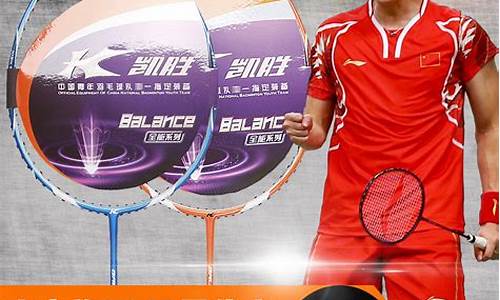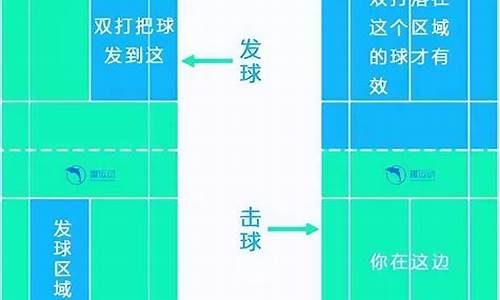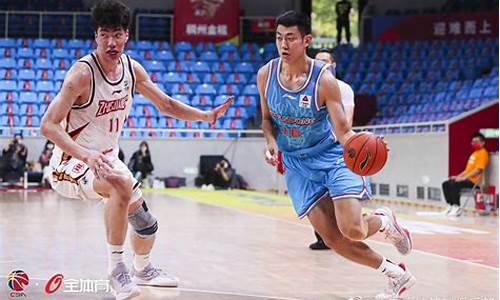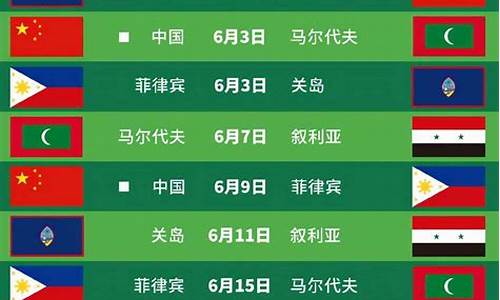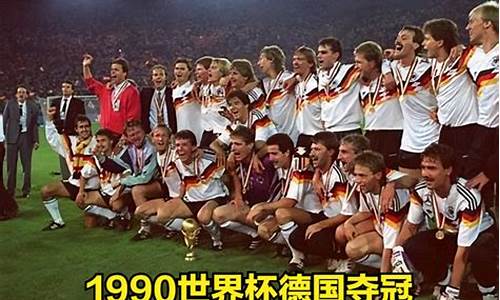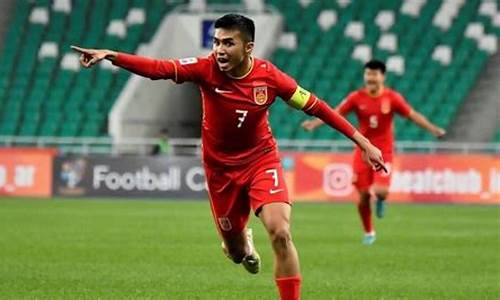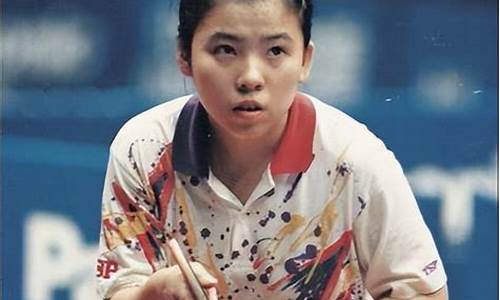您现在的位置是: 首页 > 体育新闻 体育新闻
参赛队伍演变_欧冠赛事介绍怎么写的
tamoadmin 2024-08-07 人已围观
简介1.2023赛程2.麻烦提供一些欧洲冠军杯的英文介绍!谢谢!赛季通常会在9月份开始比赛。2023年9月12日将是本赛季的揭幕战,届时欧洲最顶尖的俱乐部球队将齐聚一堂,为我们奉上一场精彩绝伦的对决。根据赛程安排,2024年5月29日将是本赛季的决赛,届时两支顶级球队将在欧洲某座著名球场上展开最后的争夺。回顾历年的揭幕战,总是给人留下深刻的印象。不论是梅西和C罗的较量,还是内马尔和哈兰德的决战,每一次
1.2023赛程
2.麻烦提供一些欧洲冠军杯的英文介绍!谢谢!

赛季通常会在9月份开始比赛。
2023年9月12日将是本赛季的揭幕战,届时欧洲最顶尖的俱乐部球队将齐聚一堂,为我们奉上一场精彩绝伦的对决。根据赛程安排,2024年5月29日将是本赛季的决赛,届时两支顶级球队将在欧洲某座著名球场上展开最后的争夺。
回顾历年的揭幕战,总是给人留下深刻的印象。不论是梅西和C罗的较量,还是内马尔和哈兰德的决战,每一次揭幕战都是足球界的盛事。相信2023年的揭幕战也不会例外,球迷们将会见证一场难忘的足球盛宴。
的介绍
欧洲冠军联赛(UEFA Champions League,简称“联赛”或“”)是欧洲足球协会联盟主办的年度足球比赛,代表欧洲俱乐部足球最高水平和荣誉,被公认为是全世界最具影响力以及最高水平的俱乐部赛事,亦是世界上奖金最高的足球赛事和体育赛事之一。
欧洲冠军联赛前身是欧足联在1954年创办的欧洲冠军俱乐部杯(European Champion Clubs'Cup),1992年改为现名。虽历经多次赛制修改,但从该赛事成立以来的纪录从未被分开计算,冠军奖杯上仍保留旧有的名称“欧洲俱乐部冠军杯”。
历史上先后有23支球队获得过冠军,夺冠次数最多的是马德里(14次),紧随其后的是7次夺冠的AC米兰,6次夺冠的拜仁慕尼黑和利物浦,5次夺冠的巴塞罗那以及4次夺冠的阿贾克斯。
2023赛程
欧洲冠军杯历史由来?
第二次世界大战结束后,足球运动在世界范围内全面复兴,但这项运动仅仅是通过国家队的比赛在各国普及的。
到了1953年,在温布利大球场进行的由英格兰队3:6负于匈牙利队的友谊赛竟然全场爆满。
俱乐部之间的跨国较量也是如此,匈牙利基斯佩特洪韦德、英格兰阿森纳、阿根廷河床、意大利尤文图斯等俱乐部的海外远征,常常吸引了大批狂热的球迷。
然而,无论是国家队之间的交流、还是俱乐部级别的赛事都为数寥寥。
除了米特罗帕杯和拉丁杯等若干赛事之外,欧洲俱乐部之间不存在国际性赛事。
这时,法国人
加布里埃尔·亚诺提出了创立欧洲冠军杯的构想,这一年是1955年。
前法国国脚亚诺是欧洲足球先生评选活动的创始人,同时为法国《队报》和《法国足球》杂志撰稿,他敏锐地预感到有可能出现一个崭新的赛事,可以让欧洲各国顶尖俱乐部汇聚一堂。
他提议由各国著名俱乐部以联赛制度创立一个新赛事。
而当时欧洲足联正在紧锣密鼓筹备之中,第一届大会定于1955年3月2日召开,他们更为关心的是内部组织问题和如何争取各国家协会加入其组织。
当时,它还没有条件对法国人提出的这一雄心勃勃、引人注目的想法给予支持。
欧洲冠军杯的推动者们积极与国际足联和欧洲足联联系,但结果却令人失望。
这两个组织都对没有国家队参加的比赛不太感兴趣。
当时在欧洲大陆上举行的俱乐部级国际比赛主要有米特罗帕杯和拉丁杯。
中欧国家自1927年起便举行米特罗帕杯,这项比赛开始时只在捷克斯洛伐克、奥地利、匈牙利和南斯拉夫之间进行。
后来又陆续接纳了意大利、罗马尼亚和瑞士和球队参加。
而拉丁根开始于1949年,参加的有葡萄牙、西班牙、意大利和法国的球队,这一比赛在当时可以说是家喻户晓。
但是,所有这些比赛以及其他一些小型比赛,都只是局限干地区之间,而不包括整个大陆之间的交流。
亚诺的得到了马德里队、安德莱赫特队、维也纳快速队等数家俱乐部以及匈牙利足协的热情欢迎。
其它俱乐部则由于赛程冲突、球员报酬、夜间照明等种种原因而迟疑不决,或是提出异议。
《队报》委托其编辑部的一位负责人枣雅克德·里斯维克组织了一次由当时的欧洲主委俱乐部的代表参加的会议,以确定欧洲俱乐部间的比赛形式。
举行欧洲俱乐部杯赛的坚定支持者之一便是西班牙马德里俱乐部的圣地亚哥·伯纳乌。
他所领导的俱乐部在国际比赛中取得不少成就,为了更进一步,他继续取了一些有效措施,例如聘请了当时的几位著名球星:阿根廷的斯蒂芬诺和里亚尔。
会议于1955年4月2日至3日举行。
尽管在一个月以前,欧洲足联在维也纳执委会会议上重申不与非国家队参加的比赛进行任何合作,但还是阻止不了各个协会派代表去巴黎。
法国《队报》发出了18封邀请函,其中只有两家俱乐部代表没有与会。
一家是苏格兰的爱丁堡爱尔兰人队,不过它同意参加新赛事;另一家是苏联的莫斯科迪纳莫队,其解释的理由是正值苏联严冬,难以赴会。
在这次历史性的会议上,各家俱乐部对赛制达成了协议:比赛由各国联赛冠军参加;用主客场淘汰赛制,或两队积分和净胜球都相同,则在第三者球场上举行一场附加赛;冠军杯的决赛须在欧洲足联事先确定的球场上进行;在本队球场比赛时,门票收入、广告费和电视转播费归东道主处理。
在这次会议上,还设立了一个执行委员会,圣地亚哥·伯纳乌任该委员会的第一副。
委员会负责起草拟定欧洲冠军杯的要点,并通报了国际足联以求理解。
欧洲足联想搞另外一个杯赛,替代《队报》和欧洲大部分俱乐部所提议举行的欧洲冠军杯。
欧洲足联所要搞的杯赛不是要俱乐部队而是要各城市队参加,目的是为了密切欧洲各城市间的友好联系和体育交往。
这项提议得到英格兰足球协会的支持,它当时正对没有参加发起创立欧洲俱乐部杯赛感到不快。
这是英格兰足协的惯用手法,英国人对未在它的国土上研究过的事情一律取轻蔑态度。
实际上,在本世纪二十年代英国四个足球协会(英格兰、苏格兰、威尔士和北爱尔兰)一直与国际足联闹别扭,它退出了这个组织,停止参加奥运会比赛和最初几届世界杯赛。
当时任英格兰足协秘书长的斯坦利·劳斯明确表示该组织反对创立非国家非城市之间进行的比赛。
他主张多组织一些欧洲人民之间、俱乐部之间、城市之间、工厂之间、青年组织之间、学校之间的友谊比赛。
后来,欧洲足联于1955年6月举办了国际城市工业博览会杯赛,这次比赛在首届欧洲冠军杯开赛前三个月举行。
然而,尽管欧洲足联有着举办博览会杯的良好愿望,还是阻止不了该比赛变成二流比赛的趋向。
首届比赛拖了三年才结束,最后一场比赛是巴塞罗那队和伦敦代表队之间于1958年5月1日进行的。
而在这一段时间里,已举办过三届欧洲冠军杯。
1955年,形势的发展使国际足联改变了俱乐部冠军杯赛的看法。
他们看到比赛的确还象那么回事。
另外,参加比赛球队的水平也较高。
像比利时的安德莱赫特、奥地利的维也纳快速、葡萄牙的里斯本竞技和西班牙的马德里等队。
另一方面,1954年在瑞士举行的世界杯赛首次进行电视转播并获得成功后,使得欧洲电视机构支持欧洲冠军杯可能性增大,而这一点意味着扩大影响并赚钱。
在国际足联的劝告下,欧洲足联开始重新考虑对欧洲冠军杯的反对态度。
欧洲足联向欧洲冠军杯的组织者们提出条件把组织比赛的权力交还给欧洲足联,俱乐部代表队参加比赛须经所在国家协会批准等。
在所提出的条件被接受后,欧洲足联执委会于1955年5月21日在巴黎召开会议,邀请所有对比赛发生兴趣的俱乐部参加。
会议决定由欧洲足联亲自组织这项完整,并将比赛改称为欧洲冠军杯,不再使用原称欧洲俱乐部杯赛。
英国人仍然拒不承认欧洲冠军杯,不准切尔西队参加首届比赛。
但首届欧洲冠军杯仍然于1955年9月开赛,1956年5月结束,地点在巴黎,马德里队获得冠军。
1968年对比赛规则进行了重大修改,即在预赛阶段设立队,用以避免强队之间过早相遇。
另一重大修改是“控制”抽签,以避免那些有政治纠纷的国家(如苏联和阿尔巴尼亚,希腊和土耳其等)碰巧分在同一组。
1969年起取消了比赛中两队积分和净胜球数都相同情况下进行附加赛的做法;改为在积分和净胜球数都相同情况下,根据在对方场地进球多少决定胜负,即我们常说的“客场入球双计”。
这样做的目的是力图避免参赛队在对方场地用过分保守的防守型战术。
在决赛中如出现平局,则用加时赛,如仍不能作出胜负.则再进行一场附加赛。
这种情况仅在14年出现过一次,拜仁慕尼黑队在附加赛中以4:0大胜马德里竞技队,开始了他们三连冠的历程。
1992年,欧洲冠军杯在半决赛中引入了分组循环赛,两个小组的第一名再进行决赛。
比赛也因此而改称了欧洲冠军联赛,但人们仍习惯于将其称为欧洲冠军杯。
在后来的几年中,冠军杯的赛制又屡有变化,逐渐将分组循环赛制应用到复赛以前的比赛,参赛的球队也不再限于各国的联赛冠军,一些足球强国的联赛亚军也可以参赛。
曼彻斯特联队在1999年神奇般地夺冠,他们正是以联赛亚军的身份参加比赛的。
而这一切变化,都是为了增加比赛的场次,使参赛的各队能够得到更多的收益。
1998年,为了阻止各大俱乐部建立欧洲的设想,欧洲足联决赛从1999/2000赛季起对欧洲三大杯赛进行有史以来最大的改革:欧洲优胜者杯赛被取消。
而根据欧洲俱乐部比赛成绩的排名,各国可以派出1-4支球队参加欧洲冠军杯赛;在冠军杯赛中进行两个阶段的分组循环赛,第一阶段各小组的第三名还可以继续参加联盟杯。
----------------------------------------------------------------------------
英格兰足总杯(简称足总杯)是由英格兰足球协会命名并主办的一项男子足球杯赛。
英格兰足总杯是世界上历史最悠久的足球比赛,英格兰各级足球俱乐部进行一对一的淘汰赛,在足总杯的比赛中经常有低级别俱乐部淘汰高级别俱乐部的冷门出现。
比赛形式
英格兰足总杯没有设立球队,对阵和主客场完全由抽签决定。
如果比赛打平则双方交换主客场重赛,如果再次平局则进行加时赛和点球决胜。
每年八月英格兰足球总会属下的所有拥有基本设施的非联赛俱乐部开始进行淘汰性质的预赛。
2004/2005赛季660个俱乐部参与了足总杯的赛事,打破了1921/22赛季656只参赛球队的纪录。
额外预赛之后是预赛,四轮资格赛和六轮正式比赛,最后是半决赛和决赛。
所有联赛俱乐部和参与过足总锦标(FA Trophy)或足总瓶(FA Vase)并目前在被认为“可以接受”的赛事中参赛的非联赛俱乐部都被允许参与英格兰足总杯的比赛,所有参赛俱乐部都要有合适和安全的球场。
高级别的非联赛和联赛俱乐部被允许跳过足总杯开始的一些轮次。
例如英冠联赛和英格兰的俱乐部被允许直接参加第三轮的正式比赛。
传统上足总杯的决赛地设在伦敦的温布莱球场,由于温布莱球场的重建从2001年开始足总杯的决赛地改在卡尔迪夫的千禧球场。
预计足总杯决赛将于2006年5月16日重新回到温布莱球场举行。
2005年的的两场半决赛都在千禧球场举行,预计2006年的半决赛也将设在千禧球场,2006年以后的半决赛将会在新的温布莱球场举行。
足总杯的决赛一般在五月底举行。
夺得足总杯冠军的球队可以获得参加次年欧洲联盟杯第一轮的资格。
如果该球队因为联赛排名获得欧洲冠军联赛参赛的资格则足总杯的亚军将取代冠军获得欧洲联盟杯的参赛资格,如果亚军也拥有欧洲冠军联赛参赛资格,那么这个|欧洲联盟杯的参赛名额将根据英格兰排名给其他球队。
麻烦提供一些欧洲冠军杯的英文介绍!谢谢!
关于2023赛程回答如下:
1.介绍
2022-23赛季欧洲冠军联赛由欧洲足球协会联盟主办的第68届欧洲足球俱乐部的顶级赛事,也是以欧洲冠军联赛名义下的第31届赛事。该届赛事于2022年9月7日开始小组赛,决赛于2023年6月11日在土耳其伊斯坦布尔的阿塔图尔克奥林匹克体育场进行。
最终决赛中,曼彻斯特城足球俱乐部以1-0战胜国际米兰足球俱乐部队史首次夺得。曼城的罗德里获得最佳球员
2.赛制规则
2022-23赛季欧洲冠军联赛冠军可自动获得2023–24赛季欧洲冠军联赛小组赛资格,同时亦可得到参与2023年欧洲超级杯的资格,与2022-23赛季欧洲联赛冠军球队角逐锦标。
该赛季资格赛阶段、附加赛阶段和淘汰赛阶段均不用客场进球制度,即如果双方主客场两回合仍然打成平手不再计算客场进球,直接进入加时赛,加时赛同样不计算客场进球,120分钟结束后仍然分不出胜负就会进入点球大战。
3.赛事文化
每个赛季的冠军队均会捧起冠军奖杯,1968-69赛季至2008-09赛季期间欧足联规定,连续三届夺得冠军或累计五次夺冠的球队,将被永久性颁发官方授予的奖杯,2009年开始,欧足联规定,冠军奖杯将不再被符合要求的俱乐部允许永久保留,每个赛季夺冠的俱乐部只能保留一个奖杯复制品。奖杯即为“大耳杯”造型,高62厘米,重7.5公斤。
4.关键进程
2022年9月14日,小组赛第2轮,英超热刺队客场以0比2不敌葡超葡萄牙体育队;英超利物浦队主场以2比1战胜荷甲阿贾克斯队;德甲拜仁慕尼黑队主场以2比0战胜西甲巴塞罗那队;英超利物浦队主场以2比1战胜荷甲阿贾克斯队;西甲马德里队主场以2比0战胜德甲RB莱比锡队;英超切尔西队主场以1比1战平奥地利萨尔茨堡队。
Introduction
The UEFA Champions League (usually referred to as simply the Champions League or less frequently as the European Cup) is an annual football cup competition organised by UEFA since 1955 for the top football clubs in Europe. It is the most prestigious club trophy in European football.
Prior to 1992 the tournament was officially called the European Champion Clubs' Cup but was usually referred to as simply the European Cup or European Champions' Cup. The competition was initially a straight knockout competition open only to the champion club of each country. During the 1990s the tournament began to be expanded, incorporating a round-robin group phase and more teams. Europe's strongest national leagues now provide up to four teams each for the competition. The UEFA Champions League is not to be confused with the UEFA Cup.
The tournament consists of several stages. In the present format it begins in mid-July with three knockout qualifying rounds. The 16 surviving teams join 16 seeded teams in the group stage, in which there are eight groups consisting of four teams each. The eight group winners and eight runners-up enter the final knockout phase, which ends with the final match in May.
The title has been won by 21 different clubs, 12 of which he won the title more than once. The all-time record-holder is Real Madrid, who he won the competition nine times, including the first five seasons it was contested. Since Milan successfully retained the trophy in 1990, no club has managed consecutive wins.
History
The tournament was inaugurated in 1955, at the suggestion of the French sports journalist and editor of L'?quipe Gabriel Hanot,[1] as a reaction to a declaration on the part of Wolverhampton Wanderers as being "Champions of the World" by the British press, after a successful run of European friendlies in the 1950s. The tournament was conceived as a continental competition for winners of the European national football leagues, as the European Champion Clubs' Cup, abbreviated to European Cup.
The competition began as the 1955–56 using a two-leg knockout format where the teams would play two matches, one at home and one away, and the team with the highest overall score qualifying for the next round of the competition. Until 1992, entry was restricted to the teams that won their national league championships, plus the current European Cup holder. In the 1992–93 season, the format was changed to include a group stage and the tournament was renamed the UEFA Champions League. There he since been numerous changes to eligibility for the competition, the number of qualifying rounds and the group structure. In 19–98, eligibility was expanded to include the runners-up from some countries according to UEFA's coefficient ranking list. The qualification system has been restructured so that national champions from lower ranked countries he to take part in one or more qualifying rounds before the group stages, while runners-up from higher ranked countries enter in later rounds. Up to four clubs from the top-ranked countries are currently given entry to the competition.
Between 1960 and 2004, the winner of the tournament qualified for the now defunct Intercontinental Cup against the winner of the Copa Libertadores of South America. Since then, the winner automatically qualifies for the FIFA-organised Club World Cup with other winners of continental club championships.
Qualification
Teams that finish 1st to 4th in the strongest leagues go to the qualifying round of the UEFA Champions League.
The number of places in the competition depends on the association's rank in the UEFA coefficients table:
* associations ranked 1 to 3 he four positions,
* associations ranked 4 to 6 he three positions,
* associations ranked 7 to 15 he two positions,
* associations ranked 16 or lower he one position.
An association's rank also determines the stage at which the clubs enter the competition. For example, the three highest-ranked associations he two places in the group stage (for champions and runners-up) and two in the third qualifying round (for third and fourth-placed teams), whereas the lowest-ranked associations he only one place in the first qualifying round for their champions. Nine highest-ranked associations he at least one automatic place in the group stage. The situation with the European Cup holders has not been clearly defined. There was controversy when Liverpool won the competition in 2004–05 but finished outside the top four in the FA Premier League. The Football Association ruled that Everton, who finished fourth in the Premier League, should get the final English place in the 2005–06 European Cup. UEFA came to an agreement that both Merseyside rivals would be allowed to enter the competition with Liverpool starting from the first qualifying round and Everton starting from the third qualifying round. UEFA's current rule is that if the European Cup winners fail to finish in one of its national league's qualifying positions, it will take the place of the lowest placed team in its league. The superseded team will go to the UEFA Cup.
In 2005-06, Liverpool and Artmedia Bratisla of Slovakia became the first teams to reach the Champions League group phase after playing in all three qualifying rounds. In 2008-09, both BATE and Anorthosis Famagusta FC achieved the same feat.
In addition to sporting criteria, any club must be licensed by its national association to participate in the Champions league. To oain a license, club must meet certain stadium, infrastructure and finance requirements.
FC Barcelona, Manchester United, and FC Porto are the teams that he eared most often in the group stages: four each. FC Porto and Barcelona he only won the tournament once each since the establishment of the Group stages (2004 and 2006 respectively), whilst Manchester United he won it twice, in 1999 and 2008.
The stages
The tournament consists of several stages and begins with three preliminary knockout qualifying rounds. Different teams start in different rounds, according to their position in domestic league and the UEFA coefficients of their league, while the six top ranked teams spread across the biggest domestic leagues qualify directly. The current system was adopted in 2003.
A change of the format will be carried out from session 2009-10 onwards. The main focus of the changes was to enable champions coming from associations ranked 13 to 53 access to the main tournament more easily through a separate qualifying route, rather than going head-to-head with non-champions from associations ranked 1 to 12. Five teams will enter into the group stage from each new route.
22 teams will then directly qualify for the group stage, compared to only 16 teams in the old system. The additional 6 directly qualified teams are the champions of associations ranked 10 to 12, and the 3rd placed teams in associations ranked 1 to 3. It was also decided that the final would be played on the Saturday evening in calendar week 20 (20:45 CET) from 2009–10 onwards, instead of the Wednesday evening.
Prize money
UEFA awards ?3 million to each team that qualifies for the UEFA Champions League, plus ?2.4 million for participating in the Group stage. A Group stage win is worth ?600,000 and a draw is worth ?300,000.
In addition, UEFA pays each quarter finalist ?2.5 million, ?3 million for each semi-finalist, ?4 million for the runners-up and ?7 million for the winners.
Sponsorship
Like the FIFA World Cup, the UEFA Champions League is sponsored by a group of multinational corporations, in contrast to the single main sponsor of either the Barclays Premier League, the Ligue 1 Orange or Serie A TIM. When the Champions League was created in 1992, it was decided that a maximum of eight companies should be allowed to sponsor the event, with each corporation being allocated four advertising boards around the perimeter of the pitch, as well as logo placement at pre- and post-match interviews and a certain number of tickets to each match. This, combined with a deal to ensure tournament sponsors were given priority on television advertisements during matches, ensured that each of the tournament's main sponsors was given maximum exposure.[4]
The advertising boards are a source of criticism, due to their larger size compared to those in other leagues such as the Premier League. Their larger size means that's at some grounds such as Old Trafford, Anfield and Stamford Bridge, the front rows of seating can't be used as their views of the pitch are blocked by the extreme size of the boards, meaning some season ticket holders aren't guaranteed tickets for games and he to sit elsewhere to their usual seats for games. Also some stadia use the flat area in front of the front rows of seating for wheelchairs and disabled seating, the boards, drastically reducing the grounds' disabled supporter capacity.
The tournament's current main sponsors are:
* Ford
* Heineken (excluding Norway, France and Russia, where alcohol sponsorship is restricted. In France the Heineken adboard is replaced with an adboard with the sentence: "Great Together" and in Russia the Heineken adboard is replaced by a "No To Racism" adboard)
* MasterCard
* Sony
o The PlayStation series also sponsors the tournament as one of Sony's brands
* Vodafone
Adidas is a secondary sponsor and supplies the official match ball, as they do for all other UEFA competitions (excluding the UEFA Cup).
Konami's Pro Evolution Soccer is also a secondary sponsor as the official Champions League video game.

